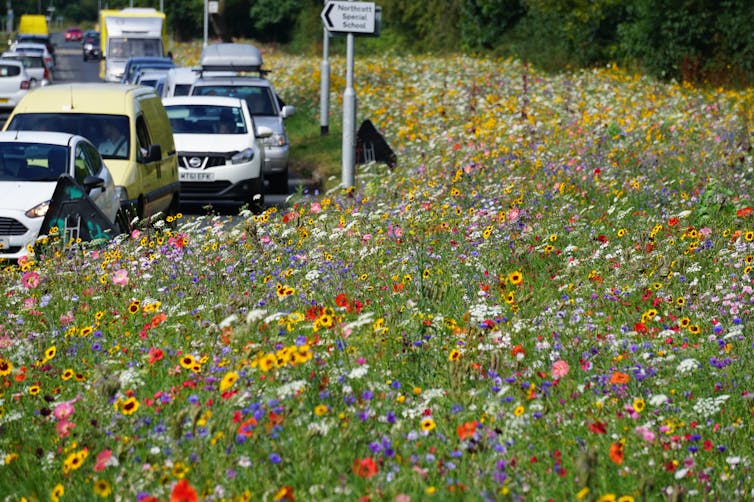Brexit: Europe has changed UK food culture for the better – leaving could turn back the clock
When the UK joined the Common Market in 1974, the country’s restaurants had a total of 26 Michelin stars, the industry standard restaurant rating, in Britain. In 2019 there are 163, including five restaurants with three stars – the highest honour awarded. Is this a coincidence or has membership of the European Union enabled the development of the UK’s vibrant contemporary food scene?
Despite what John Cleese might think, food culture in the UK is booming – chefs are becoming becoming superstars and prime-time TV slots are full of cookery programmes, which are exported all over the world. What the quality of restaurants and the global profiles of its top chefs suggests about the UK in 2019 is that it is not only a nation of foodies – but that the country has become immersed into the food and drink culture of Europe.
European food and ingredients have become staple food choices for the British. The use of ingredients such as garlic, peppers, avocados, Parmesan cheese and all those other European ingredients that are now taken for granted are relatively new and were still rare in the 1990s. When I was growing up in rural Devon in the 1970s, olive oil was only really readily available in chemists as a cure for earache – now it is found in most food cupboards. And wine drinking has permeated through all social classes.
So if Britain’s food is embedded in European culture, what will the impact of Brexit have on the restaurant industry in the UK? In order to answer this it’s necessary to identify how Britain’s ties to the EU have directly impacted upon UK restaurants.
Free movement of chefs
There has always been reciprocity in the hospitality industry, whereby chefs, sommeliers and maître ds, travel and work in other counties in order to develop their knowledge and skills. What is known in the industry as the “stage” is an important juncture in a chef’s evolution and training – and most UK-born Michelin-starred chefs have done one. Jason Atherton, who runs a suite of high-end restaurants around the country, undertook a stage at the three-star el Bulli in Spain, while Sat Bains, whose eponymous restaurant in Nottingham was named fourth-best in the world in 2018, undertook a stage at the three-star Le Jardin des Sens in France.
The immersion by chefs in European gastronomy means they have brought back techniques, ingredients and contacts that have contributed to the UK’s food scene becoming so rich and vibrant. The thriving food scene has also encouraged talented expatriates to invest in the UK restaurant industry and to choose the UK as a place to work.
The influx of European workers are not only attracted by the UK food scene, but also by the availability of varied employment opportunities in the hospitality sector. Employers have difficulty in filling vacancies, as there is a lack of qualified chefs in the UK. In 2017, People 1st (the sector skills council for hospitality and tourism) found that 25% of hospitality businesses had vacancies, 22% of which were for chefs. Many of these vacancies were reported as being hard to fill because there simply weren’t enough skilled applicants. In 2018, according to the Institute for Fiscal Studies, out of 330,000 chefs in the UK, 15% were EU immigrants. Of these, 28% were graduates and 22% of all new hires came from the EU.
What this demonstrates is that EU workers are key to the continued success of the UK restaurant industry. They are often portrayed as a source of cheap labour, but in fact are skilled, well-educated individuals who make a positive contribution to the sector. Even though many of the workers are highly skilled, wages remain low – so any move to place an income threshold of £30,000 to earn a visa will exclude the majority of EU hospitality workers. But without the labour provided by EU immigrants it is difficult to see how the sector can continue to thrive.
Free movement of ingredients
Great chefs rely on great ingredients, and seamless trade ensures that food arrives in Britain in the freshest possible state. Food items such as strawberries, peppers or chillies are delivered to supermarkets and restaurants throughout the year. Britain imports a huge amount of fresh produce from the EU – in fact, in terms of food security, through a lack of investment in farming over the past two or three decades, the UK is not and cannot be self-sufficient.
Many of the 163 Michelin-starred restaurants in the UK pride themselves on sourcing high-quality, seasonal local food. Many sustainable farming practices and conversion to organic forms of production have been supported by the EU’s accreditation of farming standards and subsidies. They also provide strict rules as to how products are grown, the pesticides used and the limitation of genetically modified processes. All of these standards are higher than touted new trade partners such as the US. The UK and EU over a period of 47 years have crafted a set of standards around production and food safety that is among the most stringent in the world.
This philosophy of quality has directly influenced the quality of the food, consumers and restaurants can access. As can be seen from a government briefing paper from January 2018, Brexit: Future UK Agricultural Policy , there is little detail around how food and agricultural policy will look post-Brexit.
But even if the UK’s agricultural sector can increase production and the variety of products grown, it currently relies on seasonal workers from the EU to harvest produce.
Back to cheap sausages?
The vibrant food culture in the UK depends on the EU to provide innovation, influence, skilled labour and products. This is reflected all the way from the shelves of Aldi and Lidl to the five UK three-star Michelin restaurants. If I am right in believing food and cuisine to be an expression of culture, then Britons are European. As the writer and social commentator Robin Leach stated before his death in 2018:
Whoever would have guessed that in the land of cheap sausages and mashed potatoes there could be such a change which would actually bring the French from Paris every weekend to invade Britain en masse to eat great food and drink great wine.
Perhaps Brexit will have a positive impact on British food culture and protect the future and integrity of the great British chip rather than being replaced by the insidious pommes frite. It will be interesting to see in the coming decade whether the number of Michelin-starred restaurants increases further. I suspect it won’t.
Richard Tresidder, Reader in Hospitality Studies, Sheffield Hallam University
This article is republished from The Conversation under a Creative Commons license. Read the original article.
















